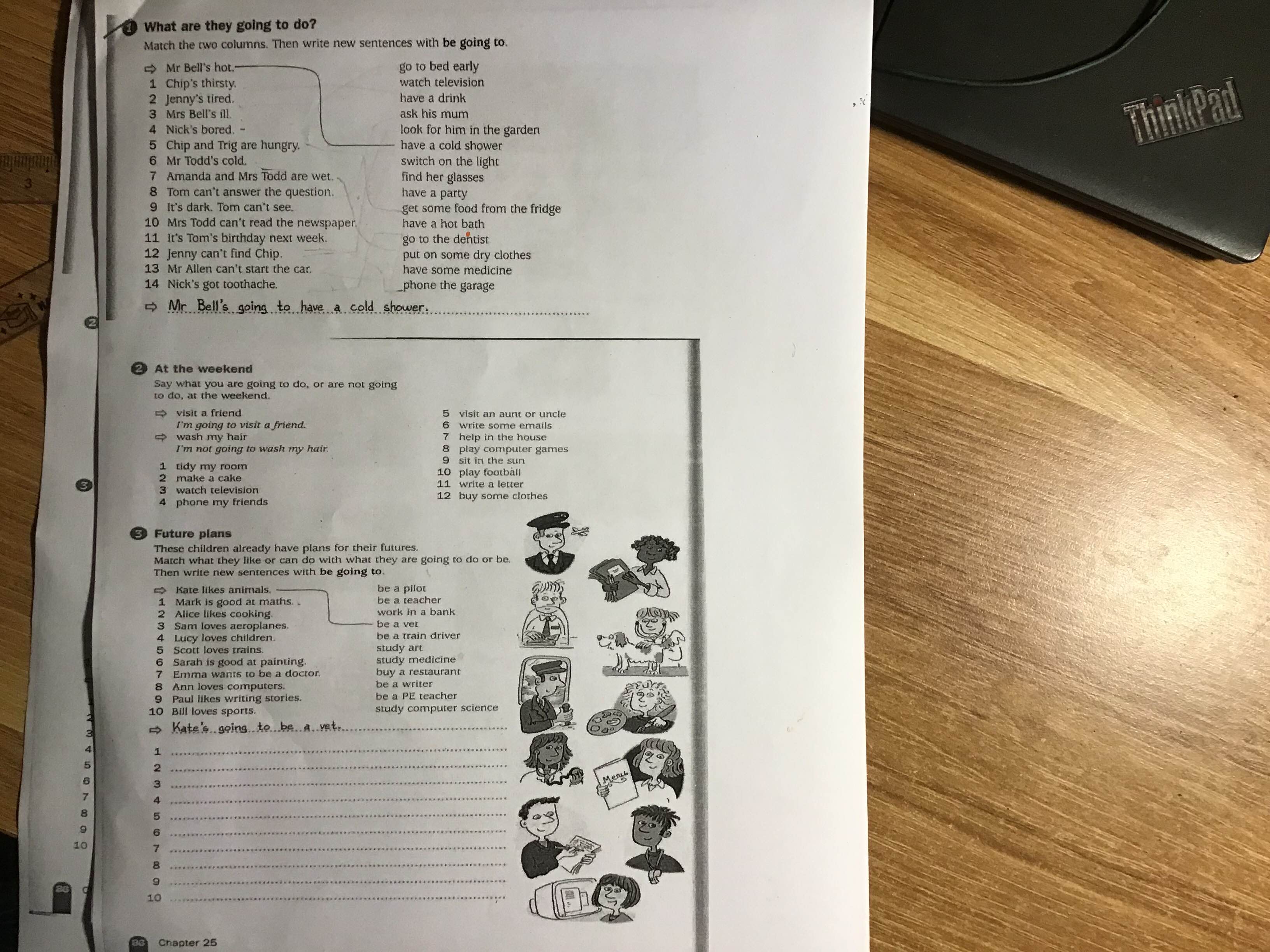
Hãy nhập câu hỏi của bạn vào đây, nếu là tài khoản VIP, bạn sẽ được ưu tiên trả lời.


đoạn văn về ngày Tết bằng tiếng Anh
Lunar New Year Festival often falls between late January and early February; it is among the most important holidays in Vietnam. Officially, the festival includes the 1st, 2nd, and 3rd day in Lunar Calendar; however, Vietnamese people often spend nearly a month celebrating this special event. Tet Holiday gets its beginning marked with the first day in the Lunar Year; however, its preparation starts long before that. The 23rd day of the last Lunar month is East Day—a ritual worshiping Kitchen Gods (Tao Cong). It thought that each year on this day, these Gods go to heaven to tell Jade Emperor about all activities of households on earth. On New Year’s Eve, they return home to continue their duties as taking care of families. On New Year’s Day, the first ones who come to visit households—called first-foot—are very important and hence need to be well chosen, as they believed to hold in their hands the entire luck of the family in New Year (Tan Nien). After that, till the third day or even the fourth day of Tet, individuals meet relatives, friends, and colleagues, wishing them all kinds of good things happiness, health, and success.
[Tết Nguyên Đán thường rơi vào khoảng cuối tháng Giêng đến đầu tháng Hai; nó là một trong những ngày lễ quan trọng nhất ở Việt Nam. Về mặt chính thức, lễ hội bao gồm các ngày 1, 2, 3 Âm lịch; tuy nhiên, người dân Việt Nam thường dành gần một tháng để kỷ niệm sự kiện đặc biệt này. Ngày Tết bắt đầu được đánh dấu bằng ngày đầu tiên của năm Âm lịch; tuy nhiên, sự chuẩn bị của nó bắt đầu từ rất lâu trước đó. Ngày 23 tháng Giêng âm lịch là ngày Đông - nghi lễ cúng Táo quân (Táo Công). Người ta cho rằng mỗi năm vào ngày này, các vị thần này lên trời để báo cho Ngọc Hoàng biết mọi hoạt động của các hộ gia đình trên trần gian. Vào đêm giao thừa, họ trở về nhà để tiếp tục công việc chăm sóc gia đình. Vào ngày Tết, những người đầu tiên đến thăm các hộ gia đình - được gọi là người đầu tiên - rất quan trọng và do đó cần được lựa chọn kỹ càng, vì họ tin rằng sẽ nắm trong tay toàn bộ may mắn của gia đình trong năm mới (Tân Niên ). Sau đó, đến mùng 3, thậm chí mùng 4 Tết, mọi người gặp gỡ người thân, bạn bè, đồng nghiệp, cầu chúc cho họ những điều tốt lành như hạnh phúc, sức khỏe và thành công.]

Được dịch từ tiếng Anh-Cross Road là album thành công lớn thứ hai của ban nhạc rock Mỹ Bon Jovi, được phát hành vào ngày 11 tháng 10 năm 1994 bởi Mercury Records. Wikipedia (tiếng Anh)
Nghệ sĩ: Bon Jovi
Ngày phát hành: 11 tháng 10, 1994
Nhãn: Mercury Records
Các thể loại: Nhạc Rock, Nhạc Rock Nặng, Nhạc Kim loại Nặng, Nhạc Pop Rock, Nhạc Kim loại Glam


Sai chính tả nhá : xem chứ ko phải sem , chắc tính theo hệ điểm em nhé . Học Online nó thế đấy , hầu như toàn tính theo hệ điểm số thôi !


Số học sinh nam là:
480 : 5/4 = 600 (học sinh)
a.Trường có tất cả học sinh là:
480 + 600 = 1080 (học sinh)
b.1080 : 15 = 72 (hàng)
Đáp số: a. 1080 học sinh
b. 72 hàng

Đây là kể chuyện :
Have you ever thought where the things around us come from? Why do objects have such names? There are actually many different explanations. For example, the following Mai An Tiem story explains the origin of the ancient appearance. The story goes that, in the reign of the 18th King Hung Vuong, there was a young man named Mai An Tiem. Mai An Tiem was quick, resourceful, and hardworking, so he was loved by the king and even married his adopted daughter. The king loved An Tiem very much, so he often gave him many delicious and strange things. Everyone who received the king's blessings cherished and praised, but An Tiem said: – It is valuable to make your own, and your donation is your money, and your giving is your debt! He still worked hard, did not intend to rely on the king's perks. All just waiting for that, Bon Quan Than brought Mai An Tiem's sentence to the king. The king was very angry and thought he was an ungrateful arrogant man. The king was very angry: "So let's see, if he only depends on his strength, can he survive?". He sent soldiers to arrest Mai An Tiem and then drove his family to a deserted island.Mai An Tiem's whole family floats on the sea day after day. Finally, they also landed on a strange island. Mai An Tiem's wife cried and cried: - Why am I so miserable? Knowing that, we shouldn't make the king angry! - God gave birth to me, life and death are in Heaven and in me. As long as we have these hands, we will not be afraid to starve to death. – Mai An Tiem comforts his wife.By chance one day, Mai An Tiem discovered that a flock of birds had come from the West, they were sitting on the shore and were eating some kind of black seed. Mai An Tiem thought: "If birds can eat this seed, people can also eat it!". Thinking so, Mai An Tiem immediately collected all the seeds and planted them in the ground. Every day, Mai An Tiem tries to fertilize his fields and gardens. Before long, his fields and gardens became green and luxuriant. The tree blooms and produces large fruit. In the harvest season, Mai An Tiem, along with his wife and children, brought all the ripe fruits home. Each fruit is dark green, when the fruit is split, the inside is bright red, juicy and has black seeds. When eating the fruit, the fruit tastes delicious, sweet, and fragrant.One day, a ship encountered a storm, so it landed on the island to avoid the storm. When people go to the sand, they see many strange and delicious fruits. They race to exchange food for An Tiem's family. Then from there, rumors spread that there was a very delicious fruit on that island. Busy merchant ships came to exchange food and food for An Tiem's family to taste the delicious taste of strange fruits. Thanks to that, An Tiem's small family became full, life was more abundant. Because birds brought the seeds from the West, An Tiem named this fruit Tay Qua. The Chinese merchants eat it well and praise it as "hau", so after that people call it a watermelon fruit. That is the origin of today's delicious and cool watermelons.
Còn đây là tả Mai An Tiêm :
Watermelon is a unique folk tale, not only to explain the origin of the precious fruit but also to promote the labor force to create material wealth and the precious spiritual values of people. In parular, the story highlights An Tiem, the adopted son of the seventeenth King Hung Vuong. Receiving the king's blessing, this young man said: "Gift is wealth, giving is debt", so he was exiled with his wife and children to a deserted island in the sea. Suddenly, the king sent a boat to pick up An Tiem's family to return to the mainland. That happiness was unexpected and great, but where could it come from if it wasn't for this young man's good personality?
Saying that raises a question: What kind of person is An Tiem? Reading this story, meeting the boy on the page, no one does not admire An Tiem's will to live independently and rely on his own strength. Because of wanting to live independently, this young man did not care about the perks the king gave him, and despised the precious things the king re-treated. It was precisely because of his independence that he uttered the sentence that the opening paragraph mentioned was the cause of his disaster: An Tiem and his wife and children were exiled to a vast deserted island, but were only allowed to bring one. a blunt sword, a scythe and five days' worth of food.
Thế nhưng nghị lực lớn lao của An Tiêm và gia đình đã không cho phép họ chịu khoanh tay ngồi chờ chết hay bất lực cúi đầu trước số phận. Chàng đã luôn luôn tìm cách vươn lên để tồn tại. Chàng đã cắp gươm đi thăm dò đảo hoang để tìm ra một con đường sống trong hoàn cảnh khắc nghiệt ấy.
Borrowing stone niches to build houses, using sour fruits and wild vegetables as the primary source of living. The hand and brain of him and his family saved themselves: growing wild vegetables into home vegetables, catching clams, catching mussels, making traps to catch birds. Life is tough, but spirit and faith are hard to shake.
One day, An Tiem went out to play, a bird was eating bait, and when he saw the movement, he quickly took off, leaving a small piece of red fruit. Unexpectedly, that little bait opened the happy story of a creative man. An Tiem thought that if birds could eat it, people could also eat it. He picked it up and tasted it, found it sweet, and ate all the pieces of the fruit and realized that he was less hungry. That way of thinking today may be considered simple, but at that time it was the light of wisdom, the light that led to agriculture, cultivation, and social sustenance.
It is also with the light of wisdom that has just said that baiting the harvest of melons, this guy chose some fruits, patiently and patiently marked them floating in the sea as a floating bridge to connect with the mainland. Sure enough, one day a boat came to ask to buy melons. Therefore, the melon was brought to the mainland, the king ate delicious, inquired about the whereabouts, learned that his beloved adopted son was still alive, and immediately sent the boat to pick up the whole family.
The return day of An Tiem and his family is also the day of shaking hands with happiness. Great happiness is unexpected but not unexpected for someone who deserves it this guy. He planted seeds, planted trust and happiness in life as he planted melons on a deserted island with all his industrious hands and creative intelligence. But the most precious thing is that An Tiem planted in the minds of young people for generations after the beautiful seeds of his personality.
Mỏi tay lắm lun í nhớ k nhen.



bài j ?
bài gì? spam là toi báo cáo